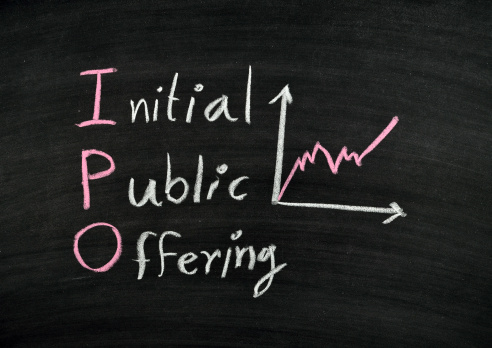Investing
New IPO ETF Certain to Gain Traction, More IPO ETF Competition
Published:
Last Updated:
The saying is that if there is a trading strategy, then there is an ETF strategy for that as well. Now the markets are getting a new exchange-traded fund strategy aimed at tracking the world of initial public offerings. Renaissance Capital already manages the actively managed Global IPO Plus Aftermarket (IPOSX) mutual fund. Now it has formally launched the Renaissance IPO ETF (NYSEMKT: IPO) for investors looking for ETF liquidity with an IPO after-market strategy. This ETF is very different from the First Trust US IPO Index (NYSEMKT: FPX), yet it may be serious competition for existing ETF.
Renaissance’s mutual fund purchases IPOs on the offering and in post-IPO trading to provide investors with access to the possible returns from IPOs. If you have been following the recent flow of IPOs, 24/7 Wall St. recently covered the 14 hottest IPOs of 2013, and these all had 50% or higher gains in their first trading day. Some were more than 100% gains in that first day. This may be enticing the investor demand underpinning the new ETF launch.
The Renaissance IPO ETF seeks to bring access to the most economically significant newly public companies. It follows a rules-based index, the Renaissance IPO Index. Under the rules it targets the most liquid newly listed U.S. stocks that came public via initial public offerings. It should be known that, for this ETF, new additions of stocks are made (in the index) on what is called a fast-entry basis, but not until the fifth day of trading. Some post-IPO inclusions are also made on quarterly review. These companies also are removed after two years of trading as a post-IPO company, when they are considered to be “seasoned stocks” by the fund and index manager’s rules.
As of September 30, 2013, the top holdings and weighting of each holding were as follows:
These compositions will change through time, particularly as these post-IPOs gain or lose in share price and as the stories mature. Other key holdings are listed as Spirit Realty Capital Inc. (NYSE: SRC), Splunk Inc. (NASDAQ: SPLK), Whitewave Foods Co. (NYSE: WWAV), Retail Properties of America Inc. (NYSE: RPAI) and more that give the current mix of holdings a total of 49 stocks.
Note that another “IPO ETF” strategy has traded already. The First Trust US IPO Index (NYSEMKT: FPX) trades more than 60,000 shares per day. This is a bit different in that it tracks the IPOX-100 U.S. Index, which is a modified value-weighted price index tracking the performance of the top 100 companies ranked quarterly by market capitalization in the IPOX Global Composite Index. Its Top 10 holdings are different, and we have shown each with the weighting as follows:
The First Trust ETF has a gross expense ratio of 0.65% and a net expense ratio of 0.60%. The new ETF from Renaissance shows that its total expense ratio (gross) is 0.60%. As you can see, there are now two post-IPO ETF strategies for investors. These two ETFs are very similar in the fee structures yet are very different in composition. In fact, the current term sheets show that Facebook Inc. (NASDAQ: FB) is currently the only overlap among the very top holdings.
The last few years made people forget how much banks and CD’s can pay. Meanwhile, interest rates have spiked and many can afford to pay you much more, but most are keeping yields low and hoping you won’t notice.
But there is good news. To win qualified customers, some accounts are paying almost 10x the national average! That’s an incredible way to keep your money safe and earn more at the same time. Our top pick for high yield savings accounts includes other benefits as well. You can earn up to 3.80% with a Checking & Savings Account today Sign up and get up to $300 with direct deposit. No account fees. FDIC Insured.
Click here to see how much more you could be earning on your savings today. It takes just a few minutes to open an account to make your money work for you.
Thank you for reading! Have some feedback for us?
Contact the 24/7 Wall St. editorial team.